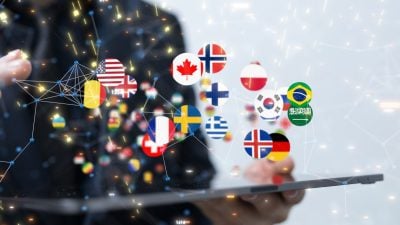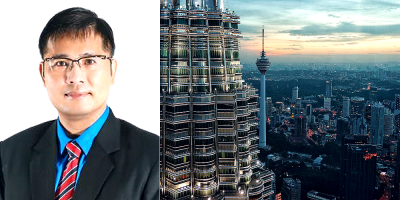
As reported by the World Bank, while global GDP growth is expected to accelerate to 5.6% in 2021, the level of GDP expansion is expected to be 3.2% below pre-COVID-19 pandemic projections.
The economic disruption caused by the COVID-19 pandemic has been devastating. Global unemployment increased to 220 million (6.47%) in 2020.
The pandemic also pushed 732 million people worldwide into extreme poverty (number of people living on less than $1.90 per day) in 2020, and this number is expected to increase further in 2021 (Global Economic Prospect, GEP).
Similarly, the Malaysian economy is projected to expand between 3.0% and 4.0% in 2021, lower than the 4.4% achieved in 2019. In addition, Malaysia’s unemployment rate remains significantly higher than in the pre-pandemic period.
According to the report published by the Department of Statistics, Malaysia (DOSM), 4.6% or 748 800 persons were unemployed in August 2021, approximately 220 000 more than the number recorded in August 2019.
Similarly in 2020, the mean monthly gross household income decreased by 10.3 per cent to RM7,089, compared to RM7,901 in 2019.
In addition, 12.5 per cent of households earned less than RM2,500 per month, and 20.0 per cent of M40 households earned less than RM4,849 per month in 2020.
Besides, the percentage decrease in income of the B40 and M40 groups were found more significant than the T20 group.
In 2020, the T20 group owned a higher proportion of the national income – 47.2% (2019 – 46.8%), whereas the B40 and M40 groups only owned (2019 -16%) and 36.9% (2019 – 37%) of the national income, respectively.
Although various initiatives (such as the PERMERKASA and PEMULIH stimulus packages) have been carried out to mitigate the impact of the economic fallout caused by the pandemic, it remains an uphill task to get the economy back to its pre-pandemic level.
Given that the economic outlook remains volatile and uncertain, and the government’s statutory debt ceiling is expected to rise to 65% of the gross domestic product, a sustainable economic recovery plan is required.
Thus, Malaysia’s policymakers should look into ways to promote sustainable development:
1. Better approach to attract FDI is required
Based on the Global Investment Competitiveness Report, the benefits of FDI for developing countries include; technology transfers, productivity enhancement and job creation.
As highlighted by the United Nations Conference on Trade and Development (UNCTAD – World Investment Report, 2021), although the uncertainty concerning the COVID-19 pandemic has led to a decline of FDI inflows to the ASEAN region to US$137 billion in 2020 (from US$182 billion in 2019), the ASEAN region remains an attractive investment destination with its share of global FDI increasing from 11.9 per cent in 2019 to 13.7 per cent in 2020.
However, it is alarming that out of the US$137 billion of FDI that the region has received, Malaysia only managed to secure US$3.5 billion (approximately 2.55 per cent) of total foreign direct investment. This amount is far behind the sums of FDI received by Singapore (US$91 billion), Indonesia (US$19 billion) and Vietnam (US$16 billion).
Recent empirical evidence has suggested that policy uncertainty threatens investors’ confidence level, thus, negatively affecting FDI inflows.
Indonesia is an attractive investment destination due to its large domestic market; Singapore’s policies have been proven to attract foreign direct investment inflows significantly. Therefore, Malaysia’s policymakers should look beyond conventional tax incentive benefits to attract FDI inflows and concentrate on policies of certainty to boost investors’ confidence instead.
2. Promote inclusive employment and structural transformation
Data obtained from the International Labour Organisation (ILO) highlights that the impact of the pandemic on the workforce has been uneven. Job destruction has been higher for workers with disabilities, younger workers, women, self-employed, and low- and medium-skilled workers.
While hiring incentives (Penjana Kerjaya 2.0 – MYFutureJobs) should be continued, policymakers, mainly from the Ministry of Human Resources, should be more proactive in approaching local businesses to push for job creation.
In addition, as highlighted by the ILO, the world cannot and should not aim to return to where labour markets stood before the crisis hit. Instead, policymakers should aim to foster a structural transformation towards more inclusive, green, fair and sustainable labour markets that provide decent job opportunities for all.
The ILO also estimates that 24 million jobs worldwide could be created by the green economy by 2030 alone, suggesting that policymakers should move into green talent development and incorporate green skills into the existing curriculum of university degrees.
3. Social protection reform
The Employees Provident Fund (EPF) highlights that the COVID-19 pandemic has also led to a significant drop in the percentage (from 36 % to 27% ) of members meeting the basic savings threshold (RM 240,000 at age 55).
As of September 2021, approximately 46% of EPF members below the age of 55 had less than RM10,000 in their accounts.
With the country’s life expectancy increasing to 75.6 years compared to 74.3 years in 2011, the insufficient level of saving for retirement, addressed by the EPF, raises concern about poverty in old age. Therefore, social protection reform is urgently required.
Policymakers should examine the introduction of social security systems similar to those of Germany and Scandinavian countries, where people with jobs must pay for health insurance, long-term nursing care, pensions and unemployment benefits.
(Goh Lim Thye, Department of Economics and Applied Statistics, Universiti Malaya.)
ADVERTISEMENT
ADVERTISEMENT







































